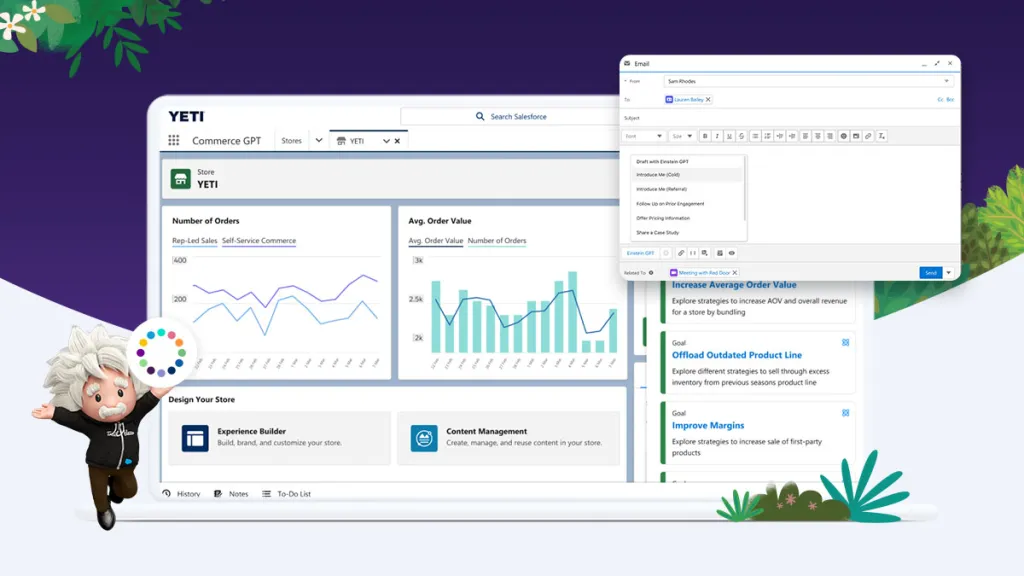Salesforce Marketing Cloud (SFMC) is a powerful platform designed to empower businesses with tools to create personalized customer journeys, execute data-driven campaigns, and improve marketing outcomes. However, before integrating SFMC into your marketing strategy, it is essential to understand the costs associated with it to avoid surprises and ensure you maximize your return on investment. Here’s a comprehensive breakdown of Salesforce Marketing Cloud costs and what you can expect.
Understanding Salesforce Marketing Cloud Pricing
Salesforce does not offer a one-size-fits-all pricing model. The costs vary based on the features you require, the scale of your operations, and the specific package or product suite you choose. Generally, SFMC pricing is divided into four key components:
- Base Platform Cost SFMC offers several modules, each designed for specific marketing needs. The most common are:
- Email Studio: For email marketing campaigns.
- Journey Builder: For creating automated customer journeys.
- Advertising Studio: For managing digital advertising campaigns.
- Social Studio: For social media listening, engagement, and publishing.
- Mobile Studio: For SMS and push notifications.
- Contact and Messaging Tiers SFMC charges based on the number of contacts in your database and the volume of messages you send. Costs increase as your contact list grows, with pricing tiers starting at:
- 10,000 contacts: Around $400/month for basic messaging capabilities.
- Additional costs apply for larger lists or advanced features such as artificial intelligence (AI) personalization through Salesforce Einstein.
- Add-Ons and Customizations Many businesses require additional tools and integrations to meet their specific needs. Common add-ons include:
- Einstein Engagement Scoring: Advanced AI-driven insights to optimize campaign performance.
- Interaction Studio: Real-time personalization and engagement tracking.
- Datorama: For advanced analytics and cross-platform data visualization.
- Professional Services and Training Implementing SFMC often requires professional services, including setup, integration, and customization. Costs for these services vary but typically range from $5,000 to $50,000 for initial setup, depending on project complexity. Salesforce also offers training programs and certifications for teams, which can add several thousand dollars to your budget.
Marketing Cloud Engagement Cost Breakdown
Here is an overview of Marketing Cloud Engagement costs for different tiers on a per-month basis:
| Plan | Cost per Month |
|---|---|
| Professional | $1,250 |
| Corporate | $3,750 |
| Enterprise | $12,000 |
Rough Implementation Cost
In addition to the monthly subscription fees, businesses should account for implementation costs when budgeting for Salesforce Marketing Cloud. These costs typically vary based on the level of customization and complexity:
- Basic Setup: $5,000 to $10,000 for small-scale implementation with minimal customization.
- Moderate Customization: $10,000 to $25,000 for businesses requiring tailored integrations and configurations.
- Advanced Customization: $25,000 to $50,000 or more for large-scale implementations involving extensive integrations, custom workflows, and advanced feature utilization.
Factors That Influence Salesforce Marketing Cloud Costs
Several variables can affect your overall SFMC costs:
- Scale of Operations: The size of your contact list and messaging volume significantly impact your monthly expenses.
- Feature Requirements: Opting for advanced tools or AI-powered features will increase costs.
- Integration Needs: Complex integrations with other Salesforce products or third-party applications may require additional investments.
- Support Level: Basic support is included, but premium support plans are available at an extra cost.
How to Plan Your SFMC Budget Effectively
- Define Your Goals Identify your marketing objectives and determine which SFMC modules align with your needs. For example, if email marketing is your primary focus, you might start with Email Studio and scale up as your requirements grow.
- Estimate Your Contact and Messaging Needs Calculate the size of your contact list and anticipated messaging volume. This will help you determine your base pricing and ensure you select the appropriate plan.
- Factor in Add-Ons and Training Consider whether your team needs additional features, professional services, or training to maximize SFMC’s capabilities.
- Monitor Usage and Optimize Regularly review your usage and campaign performance. Adjust your subscription as needed to avoid overpaying for unused features.
Is Salesforce Marketing Cloud Worth the Investment?
SFMC is a robust solution for businesses aiming to elevate their marketing efforts. Its advanced features, scalability, and seamless integrations with other Salesforce products make it a preferred choice for many organizations. However, it’s crucial to evaluate whether the platform’s capabilities align with your business goals and budget.
By understanding the cost structure and planning your budget carefully, you can make an informed decision and ensure a positive ROI from Salesforce Marketing Cloud.
Are you ready to take your marketing strategy to the next level? Start by assessing your needs and exploring the right Salesforce Marketing Cloud package for your business today!




